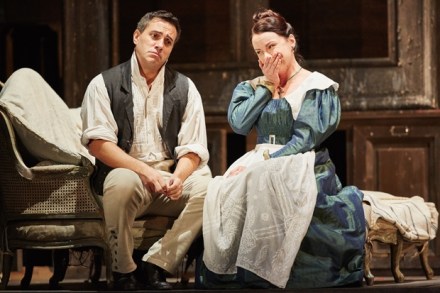Stop calling me ‘Goat’
The title of Tim Parks’s 17th novel is false advertising, because Thomas and Mary: A Love Story is barely a love story, and it’s certainly not about Mary. The intended effect is irony: the dust jacket promises ‘a love story in reverse’, and the opening chapter describes Thomas Paige losing his wedding ring on Blackpool beach during a family holiday. The next few chapters are reasonably successful. Parks opens little windows on to the Paiges’ dying marriage. ‘Bedtimes’ takes us through a week of evenings, with the Paiges always going to bed at different times. ‘Goat’ explains the nicknames they’ve had for one another over the years, ending with a


















